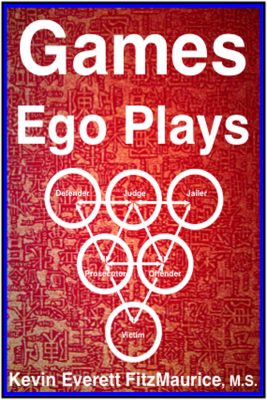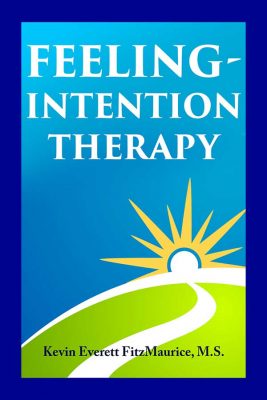How To Benefit from Correction
- Garden will teach you an easy and effective Cognitive Behavioral Therapy (CBT & REBT) system.
Second Question in Counseling: Discover how to make the best use of your counseling time by understanding how to handle correction
- Read and discover the best CBT self-help system.
Second Question in Counseling
- The second question for counseling is:
- How do you handle the ego attacks so that you can choose to benefit from correction?
Second Question in Counseling: ABOUT YOUR THINKING, NOT YOU
- The best strategy is to make sure that you consider (frame, interpret, construe, perceive, view) the correction to be about your thinking and not your being.
- You can think about this as acting: detached, objective, without personalizing, with perspective, unsentimental, distanced, separated, differentiated, disentangled.
Second Question in Counseling: PRACTICE USE OR USA, NOT CSE
- You need to practice either USE or USA instead of CSE to have the inner strength to focus on your thinking and not your being.
- USE is unconditional self-esteem.
- USE means you have value regardless of your thoughts, feelings, or behaviors.
- USA means unconditional self-acceptance.
- USA means accepting yourself regardless of your thoughts, feelings, or behaviors.
- CSE, conditional self-esteem, means you value yourself based on your thoughts, feelings, and behaviors.
- That is, you have conditions (criteria, standards, requirements, demands) that must be met to consider yourself valuable.
Second Question in Counseling: PRACTICE OF CSE VERSUS USE
- The practice of CSE means that you are focused on your ego, your being good or bad depending on what you know, do, have, or experience.
- If this is your choice, you will react to criticism as an attack on your being, no matter how well you hide that reaction from yourself and others.
- The practice of USE means that you are focused on your thinking, feeling, and doing, not your being.
- Our being is secure because its value is predetermined by your belief that your self has high value—period.
- You value yourself because of yourself. That is, you value the self because of the nature of your self.
- There is no challenge to disputing or changing such a value.
- The value of your self stands unchanged by experience as the nature of your self stands unchanged by experience.
- You realize that the self does not change by what you do–only the ego changes by what you do.
- The ego is the definition of self as a replacement for self.
Second Question in Counseling: THE CHOICE IS ONLY YOURS
- Will you choose to value yourself, others, and life conditionally?
- This means you will be ego-bound and will work to help others also to be ego-bound.
- Or, will you choose to value yourself, others, and life unconditionally?
- This means you will let your ego go and be free to be.
Second Question in Counseling: THE “HOW” QUESTION
- How will I make it possible for myself to benefit from correction instead of personalizing it?
- Will I use either USE or USA so that I might remain detached and use correction to improve my thinking?
Second Question in Counseling: Quotations Various Sources
The second question in Counseling is Listed Alphabetically
“A fool is only a fool because he won’t see he is a fool.” —Kevin Everett FitzMaurice
“A man of genius makes no mistakes. His errors are volitional and are the portals of discovery.” —James Joyce
“But if ye be without chastisement, whereof all are partakers, then are ye bastards, and not sons.” —Hebrews 12:8
“By honestly acknowledging your past errors, but never damning yourself for them, you can learn to use your past for your own future benefit.” —Albert Ellis and Robert A. Harper, A Guide to Rational Living, Third Edition, p. 194
“Correction is grievous unto him that forsaketh the way: and he that hateth reproof shall die.” —Proverbs 15:5
“Failure doesn’t have anything to do with your intrinsic value as a person.” —Albert Ellis and Robert A. Harper, A Guide to Rational Living, Third Edition, p. 206
“For whom the Lord loveth he chasteneth, and scourgeth every son whom he receiveth.” —Hebrews 12:6
“If we eliminated all errors, we would also eliminate much discovery, art, insight, learning, and creativity that results from facing errors.” —Kevin Everett FitzMaurice
“If ye endure chastening, God dealeth with you as with sons; for what son is he whom the father chasteneth not?” —Hebrews 12:7
“My son, despise not the chastening of the LORD; neither be weary of his correction:” —Proverbs 3:11
“The great man is he who does not lose his child-heart.” —Mencius
“The greatest explorer on this earth never takes voyages as long as those of the man who descends to the depth of his heart.” —Julien Green
“The trouble with most of us is that we would rather be ruined by praise than saved by criticism.” —Norman Vincent Peale
“When receiving correction, the wise seeks to learn, and the fool seeks to justify with excuses.” —Kevin Everett FitzMaurice
Second Question in Counseling: Quotations from Scripture on Counseling
Listed Alphabetically
“A wise man will hear, and will increase learning; and a man of understanding shall attain unto wise counsels:” —Proverbs 1:5
“Where no counsel is, the people fall: but in the multitude of counselors there is safety.” —Proverbs 11:14
“The way of a fool is right in his own eyes: but he that hearkeneth unto counsel is wise.” —Proverbs 12:15
“Deceit is in the heart of them that imagine evil: but to the counselors of peace is joy.” —Proverbs 12:20
“Without counsel purposes are disappointed: but in the multitude of counselors they are established.” —Proverbs 15:22
“Hear counsel, and receive instruction, that thou mayest be wise in thy latter end.” —Proverbs 19:20
“Every purpose is established by counsel: and with good advice make war.” —Proverbs 20:18
“Take counsel, execute judgment; make thy shadow as the night in the midst of the noonday; hide the outcasts; bewray not him that wandereth.” —Isaiah 16:3
“Extol not thyself in the counsel of thine own heart; that thy soul be not torn in pieces as a bull [straying alone.]” —Ecclesiasticus 6:2
“As timber girt and bound together in a building cannot be loosed with shaking: so the heart that is stablished by advised counsel shall fear at no time.” —Ecclesiasticus 22:16
“Give not over thy mind to heaviness, and afflict not thyself in thine own counsel.” —Ecclesiasticus 30:21
“A man of counsel will be considerate; but a strange and proud man is not daunted with fear, even when of himself he hath done without counsel.” —Ecclesiasticus 32:18
“And let the counsel of thine own heart stand: for there is no man more faithful unto thee than it.” —Ecclesiasticus 37:13
“Let reason go before every enterprize, and counsel before every action.” —Ecclesiasticus 38:33
“Gold and silver make the foot stand sure: but counsel is esteemed above them both.” —Ecclesiasticus 40:25
Second Question in Counseling: Related Pages of Free Information
- CBT, CT, & REBT Cognitive Psychotherapies: List Pages
- Coping Skills: Free Help
- Correction—My Friend or Foe?
- Counseling Issues: Free Help
- Ego & Self-Esteem Fast-Facts
- Emotional Responsibility: List Pages
- Exercises & Techniques: List Pages
- Feeling & Coping: Fast-Facts
- First Question in Counseling
- REBT (Rational Emotive Behavior Therapy): List Pages
- Self-Esteem Issues: List Pages
- Third Question in Counseling
- Unconditional Self-Esteem (USE): Defined
- Read and discover the best diagrams and maps of how people play games with their minds and hearts.
- Read and discover how CBT, REBT, & Stoicism evolved into one system: STPHFR.
- Most advanced understanding of feelings combined with efficient and effective therapy.
Second Question in Counseling: 6 Groups of Topics Menu
- 1. Pages by Topic
- 2. Fast-Facts by Topic
- 3. Quotations by Topic
- 4. Poems by Topic
- 5. Scripture by Topic
- 6. Websites by Topic
- Read and discover how CBT, REBT, & Stoicism evolved into one system: STPHFR.
- Read and discover the world’s best breathing exercise for centering and peace of mind.
- Most advanced understanding of feelings combined with efficient and effective therapy.
Second Question in Counseling: 10 Skills & Topics Menu
- 1. Coping Skills & Topics
- 2. Problem-Solving Skills & Topics
- 3. Communication Skills & Topics
- 4. Recovery Skills & Topics
- 5. Anger Skills & Topics
- 6. Blame Skills & Topics
- 7. Thinking Skills & Topics
- 8. Responsibility Skills & Topics
- 9. Counseling Skills & Topics
- 10. Praying Skills & Topics
- Read and discover how CBT, REBT, & Stoicism evolved into one system: STPHFR.
- Read and discover the world’s best breathing exercise for centering and peace of mind.
- Most advanced understanding of feelings combined with efficient and effective therapy.





